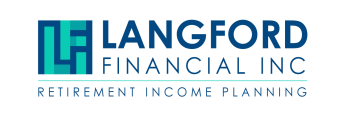We know the importance of life insurance...
Over the past few years, we have delivered more than 3 Million dollars worth of cheques to clients.
These cheques were the difference between which side of the poverty line some people would end up on. There's incredible value in life insurance when it comes to a surviving spouse being able to pay off the mortgage, send the kids to university and being able to maintain her dignity once a large chunk of the family income is no longer there.
A KEY component to a rock-solid financial plan is risk management, which includes the right kind of insurance that fits the situation. Our objective as we put together a financial plan is for you to have the right amount of insurance, the right kind of insurance and at the right price.
What's the right amount for you?
You may not need life insurance if:
1. You don’t have anyone who depends on you for support.
2. You have no large debts or expenses.
3. You have plenty of cash or property in your estate to pay funeral expenses, taxes, and probate fees.
4. You don’t need or want extra money to leave to family, friends, or charities.
You need life insurance if:
1. Someone you support will still need your income when you’re no longer alive to earn it.
2. You’re likely to die, leaving a large debt and you want it paid without eating into the capital of your estate, or causing grief to your loved ones.
3. You want to create a fund to pay funeral costs, taxes, probate, and legal fees.
4. You want to leave money you wouldn’t otherwise have to a family member, friend, or charity.
5. Your death could leave am income deficiency for your spouse.
The right amount of insurance for you can easily be calculated by adding up your immediate needs such as money to cover funeral costs, debts, legal fees, taxes, and accounting. This is usually anywhere from $25,000 - $500,000.
The second part of the equation is long-term needs like replacing your income so that your family can maintain their standard of living and dignity until the youngest child is 18, and a college fund so that your children can attend university. There are other longer-term needs as well that can vary from family to family.
What is the right type of insurance?
The first type of insurance is TERM insurance. It can be purchased for terms of anywhere from 5 to 40 years. It is temporary insurance meant to cover the risk while you are younger, raising a family, paying off your mortgage and working to support your family. Term insurance locks in your price for the term you choose and it gets more expensive as you age. Eventually, the term insurance expires and cannot be renewed any longer, typically age 75-85.
Permanent insurance, such as whole life, on the other hand, is for the duration of your life and serves a different purpose than term insurance. This type of insurance is meant to be there for your whole life and will pay out a benefit as long as you keep the policy in force.
There are 5 benefits of permanent insurance.
1. Paying funeral and final expenses.
2. Growing a cash value with annual dividends from the policy.
3. Creating a tax-free estate for your family.
4. Funding retirement.
5. Paying a large tax bill.
What if life insurance was another way to help fund your retirement? What if life insurance was a better way to pay the taxes due on your estate when you die? What if life insurance was a better way to defer and reduce income taxes in retirement? Then, the conversation changes. Don't rule out the valuable role of permanent life insurance in your retirement income and estate planning.
Let me give you 2 points to ponder:
1. The day you die, everything you own is deemed to be sold. If you have a surviving legal partner with joint rights of survivorship, the residue of your estate can flow to them tax-free, however when your partner dies, the tax man cometh. Here's where a joint last-to-die insurance policy, which provides a tax-free death benefit, can be incredibly useful - to pay the taxes due.
- Consider a 45-year-old couple with a joint last to die policy for $50,000
- Cost of the premiums are $1338/year for 20 years: $26,760
- Approximate Cash Value at age 65: $37,766
- Annual Dividend at age 65: $2071
- Approximate Insurance payout at the time of death of last surviving spouse: $199,406 (Money available to offset tax or provide an inheritance)
2. What if you could use that same joint last-to-die permanent insurance policy to create tax-advantaged income throughout retirement as well? You could get the best of both worlds. Permanent life insurance has its place. Like anything, explore all of your options when it comes to creating retirement income, reducing taxes and leaving a legacy.
You could use the dividends as income or you can use the cash surrender value as collateral to get a loan at a financial institution. The loan would be a tax-free way to get the cash from the policy. The loan can be paid back from the eventual proceeds of the policy upon the death of the last surviving spouse.
The right price for you.
The premium you pay for your insurance is based on your gender, age, smoking status, family history and general quality of your health. The lower the risk you pose, the lower the price. Once we determine the right amount of insurance you need and the right kind, we can then decide which insurance company to apply with that will give you the best rates. We work with more than a dozen companies in Canada and will shop the market on your behalf to find the best value.
It's always advisable to get insurance at an early age and get a policy that has the flexibility to be altered to fit your changing needs throughout life.
Stay away from mortgages or any type of credit insurance sold through a bank, as you are almost always overpaying for this. Don't depend too much on the life insurance offered through your work's group plan. That insurance is only reliable as long as you are with the employer and most people change employers multiple times throughout their lives and the insurance will usually terminate at age 65.
Before you cancel or throw out that old Term or Universal Life insurance policy, let's find out what your options are.
Simply contact us and we can discuss this with you.
Retirement Income, Investment & Tax Planning,
Willis & Nancy Langford
587-755-0159

Everyone Needs and Deserves a Retirement Income & Investment Plan







